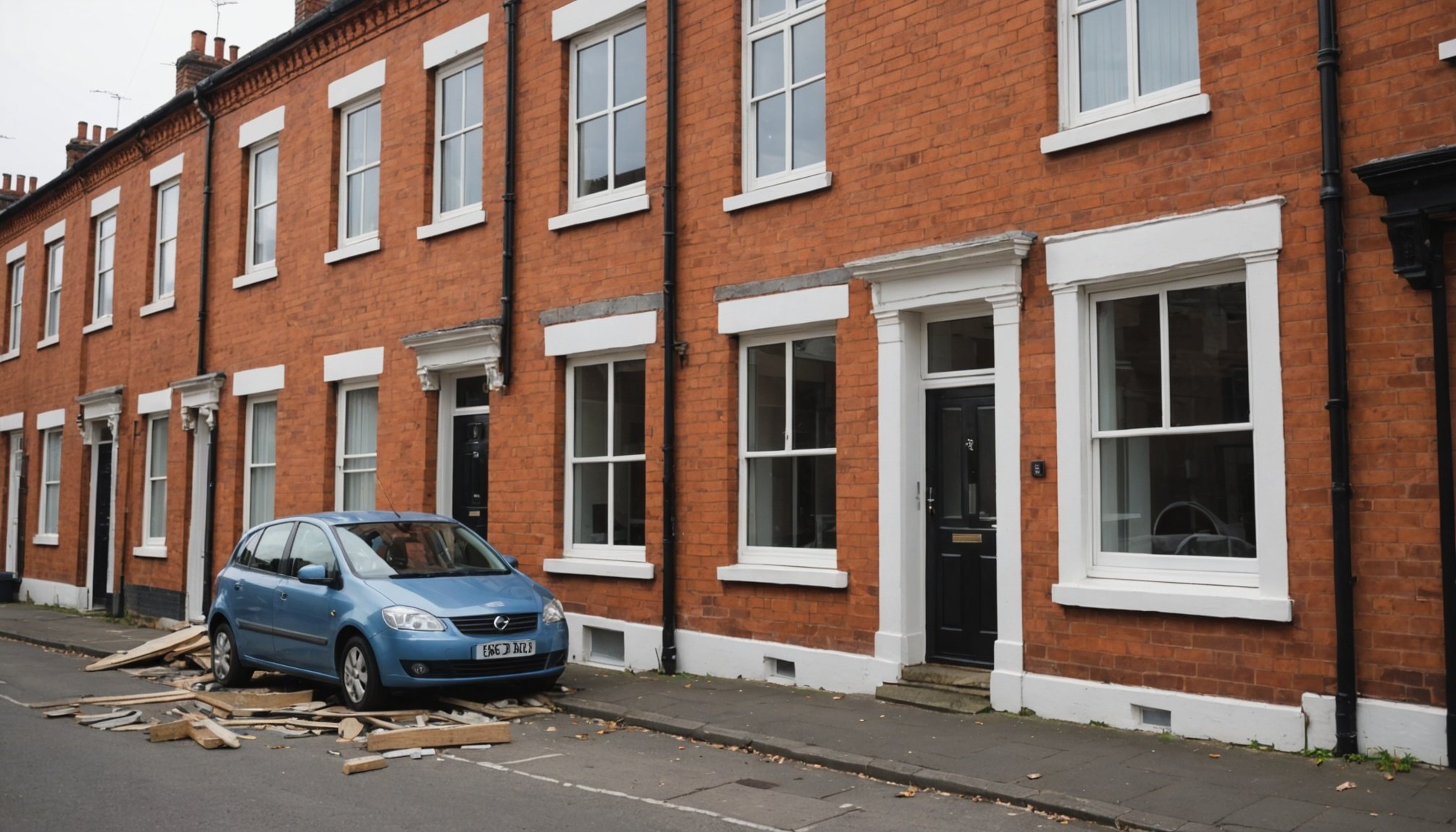In the ever-evolving UK property market, the allure of house flipping has captured the imagination of many aspiring real estate investors. With the potential for profit through strategic renovation and investment, house flipping can be an enticing venture. However, the path to flipping success is riddled with challenges and uncertainties. In this article, we explore the potential risks associated with flipping houses in the UK and provide actionable strategies to mitigate them. Our goal is to equip you with the knowledge and insights necessary to navigate this dynamic market with confidence.
Understanding the UK Property Market Dynamics
The UK real estate market is intricate and diverse, with various factors influencing property prices and trends. As potential investors, understanding the market dynamics is crucial for informed decision-making.
This might interest you : What are the impacts of local development plans on property value in the UK?
Market Volatility
The UK housing market is subject to fluctuations due to economic conditions, political events, and changes in interest rates. These elements can significantly affect property values, making it challenging to predict the short-term outcome of a flip. Financial stability is crucial for navigating these uncertain waters, so always be prepared for potential downturns.
Regional Variations
The property landscape in the UK varies widely from region to region. While some areas experience rapid growth and appreciation, others may stagnate or even decline. Understanding local market conditions will help you identify properties with higher potential for profit. Conduct thorough research on neighborhood trends and consult with local estate agents to gain insights.
Also to see : How can you measure the success of your property investment portfolio in the UK?
Legal and Regulatory Framework
The UK’s legal and regulatory environment can be complex, with numerous rules governing property investment and renovation. Compliance with building codes, planning permissions, and tax regulations is imperative. Failing to adhere to these legal requirements can lead to costly fines and project delays. Engage with professionals such as solicitors and tax advisors to ensure compliance and avoid legal pitfalls.
Evaluating Property Costs and Renovation Challenges
Renovation is a critical aspect of house flipping, and understanding the associated costs and challenges is essential to minimize risks. Here, we delve into the intricacies of evaluating and managing property renovations effectively.
Accurate Cost Estimation
When embarking on a flip, precise cost estimation is vital. Underestimating renovation costs can significantly erode potential profits. Conduct a comprehensive assessment of the property’s condition and develop a detailed budget that includes material expenses, labor fees, and contingency funds for unforeseen issues.
Renovation Logistics
Managing a successful renovation project requires efficient logistics and coordination. From hiring trustworthy contractors to sourcing quality materials, each component of the renovation process must be meticulously planned. Delays and mismanagement can lead to increased expenses and extended timelines, impacting the overall investment outcome.
Identifying Hidden Issues
Unforeseen structural problems or outdated infrastructure can significantly impact renovation costs. Prioritize thorough inspections and identify any hidden issues before making a purchase. This proactive approach will help you anticipate potential challenges and adjust your financial plan accordingly.
Mitigating Financial Risks and Maximizing Profits
Financial considerations are at the heart of every successful property flip. Understanding how to mitigate financial risks while maximizing potential profit is vital for sustained success.
Strategic Budgeting
Implementing a strategic budget is fundamental to mitigating financial risks. Allocate funds wisely, with a clear distinction between essential and non-essential expenses. Regularly review your budget to ensure adherence and make adjustments as needed to align with changing circumstances.
Contingency Planning
Having a contingency plan in place can safeguard your investment against unexpected setbacks. Allocate a portion of your budget as an emergency fund to cover unforeseen costs or delays. This financial cushion will provide peace of mind and help you manage unexpected challenges without jeopardizing the overall project.
Exit Strategies
A well-defined exit strategy is essential for maximizing profit. Whether you plan to sell the property immediately after renovation or hold it for future appreciation, a clear exit strategy will guide your financial decisions. Stay informed about market conditions and be prepared to adjust your strategy to capitalize on market opportunities.
Navigating Tax Implications and Legal Considerations
Understanding the tax implications and legal considerations associated with house flipping in the UK is crucial to mitigate potential risks and ensure compliance.
Stamp Duty and Capital Gains Tax
Stamp duty and capital gains tax can significantly impact your profit margins. Familiarize yourself with the latest tax regulations and seek professional advice to minimize tax liabilities. Efficient tax planning can enhance your overall financial outcome and improve investment returns.
Compliance with Building Regulations
Adhering to building regulations and obtaining necessary permits is essential for a successful flip. Non-compliance can lead to legal challenges and devaluation of your property. Engage with professionals to ensure all renovations meet local guidelines and standards.
Protecting Your Investment
Protecting your property investment involves more than just compliance. Consider obtaining comprehensive insurance coverage to safeguard against unforeseen events such as damage or theft. This protective measure will help mitigate risks and preserve the value of your investment.
Flipping houses in the UK presents a unique set of risks and challenges. However, with strategic planning and a thorough understanding of the market, you can mitigate these risks and capitalize on investment opportunities. By staying informed about property market dynamics, budgeting effectively, and complying with legal requirements, you can navigate the world of house flipping with confidence. Remember, successful property flipping requires a blend of knowledge, financial acumen, and adaptability. Equip yourselves with these essential tools to turn potential challenges into opportunities and achieve profit in the competitive UK property market.











